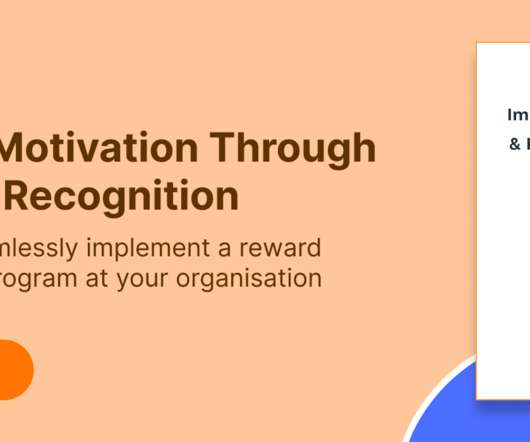What Are Employee Incentives?
Intoo USA
AUGUST 17, 2023
Employee incentives are rewards or benefits provided by employers to motivate employees and boost their morale in the workplace—ultimately enhancing job performance and satisfaction, and aiding in attracting top talent. Over time, the concept evolved, with various industries experimenting with different incentive structures.



















Let's personalize your content